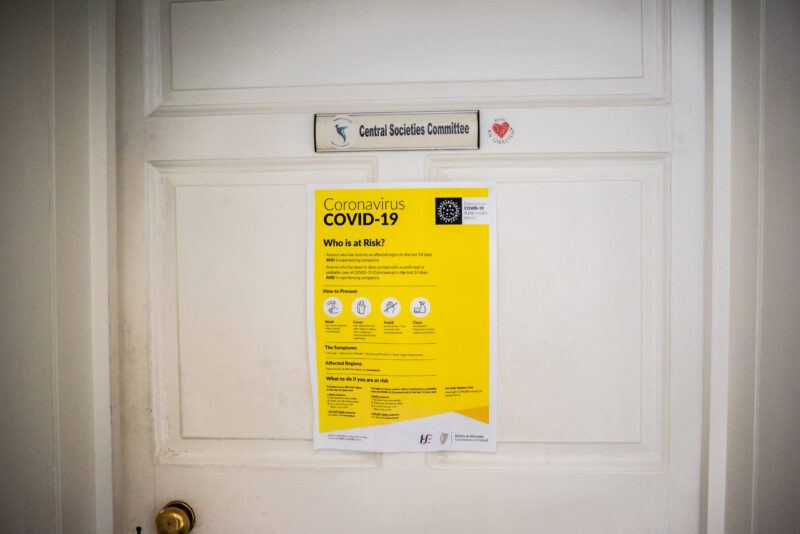The Central Societies Committee (CSC) has denied breaching its own constitution, despite its plan to run elections for the organisation’s executive more than six months late.
The CSC’s constitution states that an Annual General Meeting (AGM) must take place in week 10 of the second semester, and that “at the AGM the Chairperson, the Treasurer, the Secretary, the Amenities Officer, and the eight ordinary members of the Executive, shall be elected in that order, for the following year”.
Last month, the CSC informed societies that it would be running its AGM on October 13th, more than six months after the constitution stipulates.
In an email statement to society officers in March 26th, seen by The University Times, the CSC executive said that it had considered running its AGM remotely, but had instead postponed it until the beginning of the 2020/21 academic year, citing a section of the constitution which allows the executive to determine “any point of clarification or interpretation of this Constitution which may be required”.
The committee said that according to the constitution the AGM must be held in person, citing section 8.6 and 9.1.(i) as justification. This meant that the AGM would have to be postponed.
However, neither paragraph says that meetings must be held in person, or states that an AGM could not take place remotely. Instead they state that two thirds of members of the Committee must be “present” in order to vote for a motion to adjourn or to suspend standing orders, and that the treasurer of a society may send a proxy to an AGM if they cannot attend the meeting.
The email added that the executive had granted itself executive power in accordance with section 6.10 of its constitution, in order to “ensure continuity of the CSC as an organisation”.
In an email statement to The University Times, Strategic Development Officer Joseph O’Gorman denied that the executive had breached the constitution, and that the decisions had not been “disputed by the general Committee”, which consists of the treasurers of all recognised societies in Trinity.
O’Gorman said that because the AGM did not take place, the section of the constitution stating that executive officers were elected at the AGM for the following year did not apply, and “will not apply until there is an AGM”. He did not elaborate on why the stipulation that officers would only hold their position for the following year no longer applied.
Another paragraph states that the new executive officers take office seven days after they are elected at the AGM.
“This means”, O’Gorman said, “that every member of the Executive, which includes the CSC’s elected officers, hold their respective positions (barring resignation, election to higher position, impeachment, or ceasing to be a registered student) within the period from the first Executive Meeting following an AGM until the first Executive Meeting following the subsequent AGM”.
Section 5.2 of the constitution states that if a member of the executive “ceases to be engaged in academic studies or research”, then they are “obliged to resign immediately”.
O’Gorman said that no members of the executive were in breach of this provision. When asked if any members of the executive were no longer students, CSC Chair Lee Campbell did not respond.
“The CSC AGM will be called at the beginning of this academic year”, O’Gorman added. “In the meantime, we encourage all of those considering running – or those who are unsure about running – to reach out to any of the CSC officers or staff to find out more about the roles and why it is worth volunteering your time.”
On March 24th, the CSC sent an email to all societies giving them detailed advice on how to run a virtual AGM. The committee secured a Zoom webinar license, which allows 1,000 people to participate and vote in an AGM.
The email, signed by Campbell, said: “The current circumstances present a variety of challenges in running a society AGM, and these challenges will differ greatly from society to society.”
“In some cases, you may opt to run a virtual AGM as outlined below or using other online tools. In other cases, it may be necessary to suspend an AGM until the start of next term.”
“We’ll be as accommodating as possible in this regard, however, if you think the latter may be necessary please chat to us first.”
Aoife Kearins also contributed reporting to this piece.







